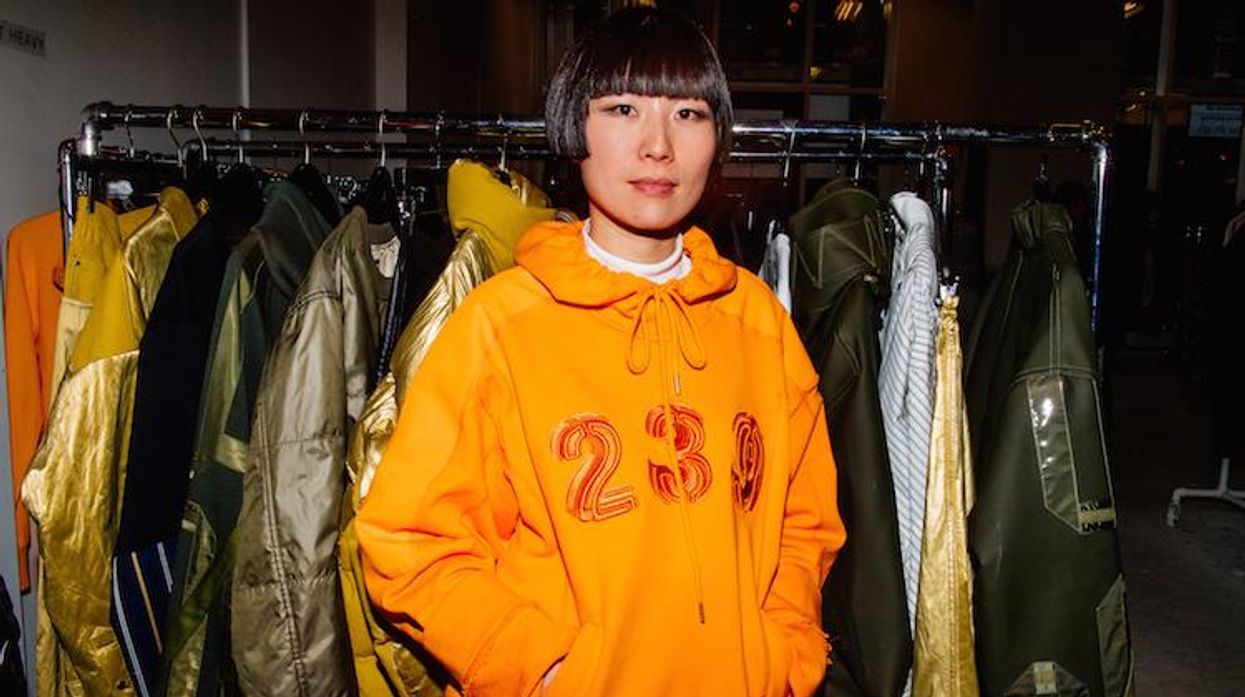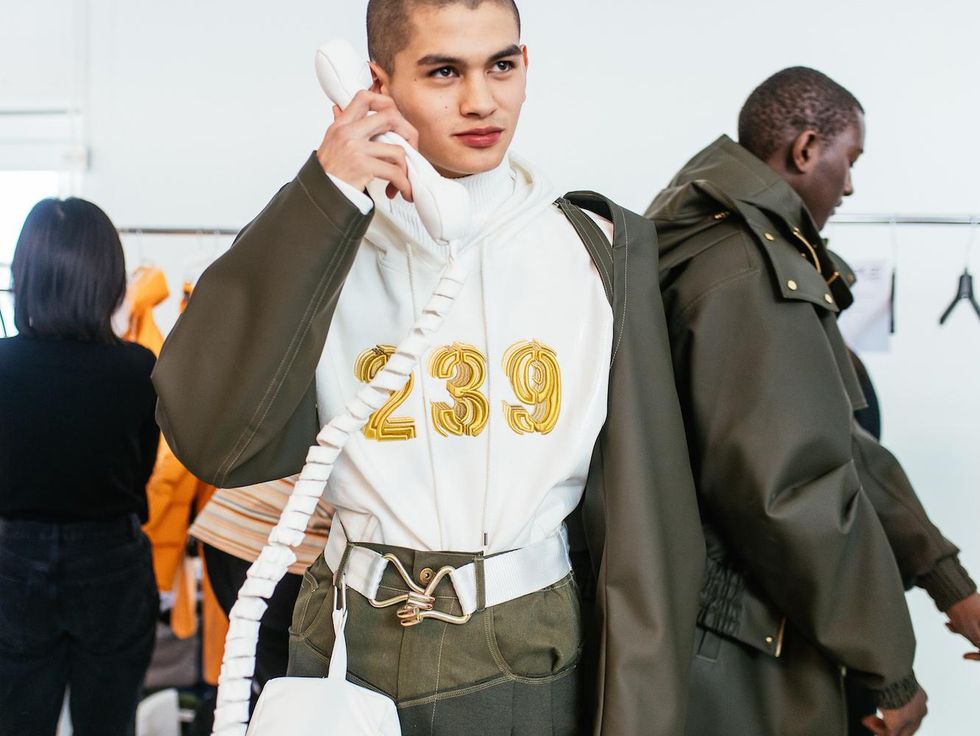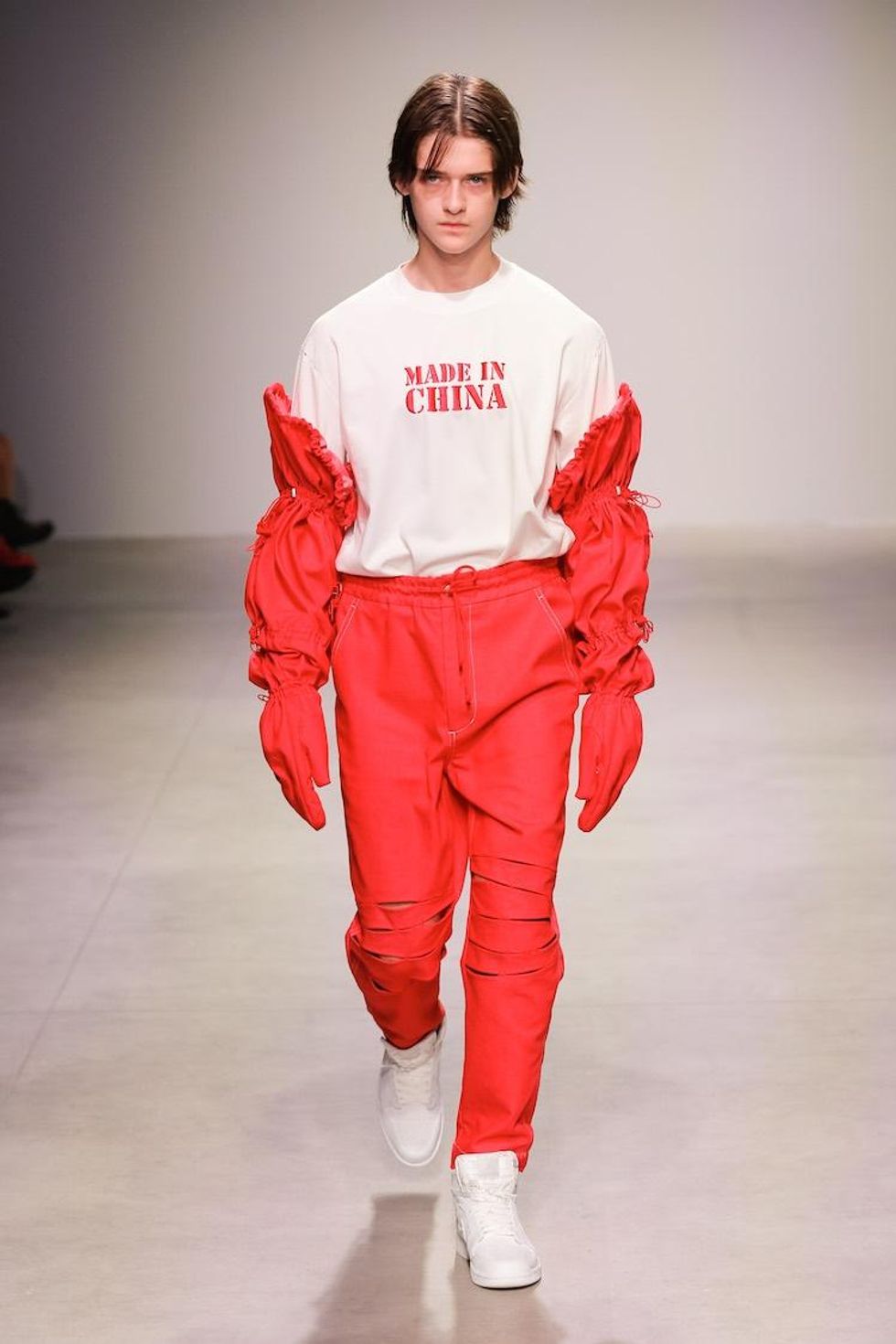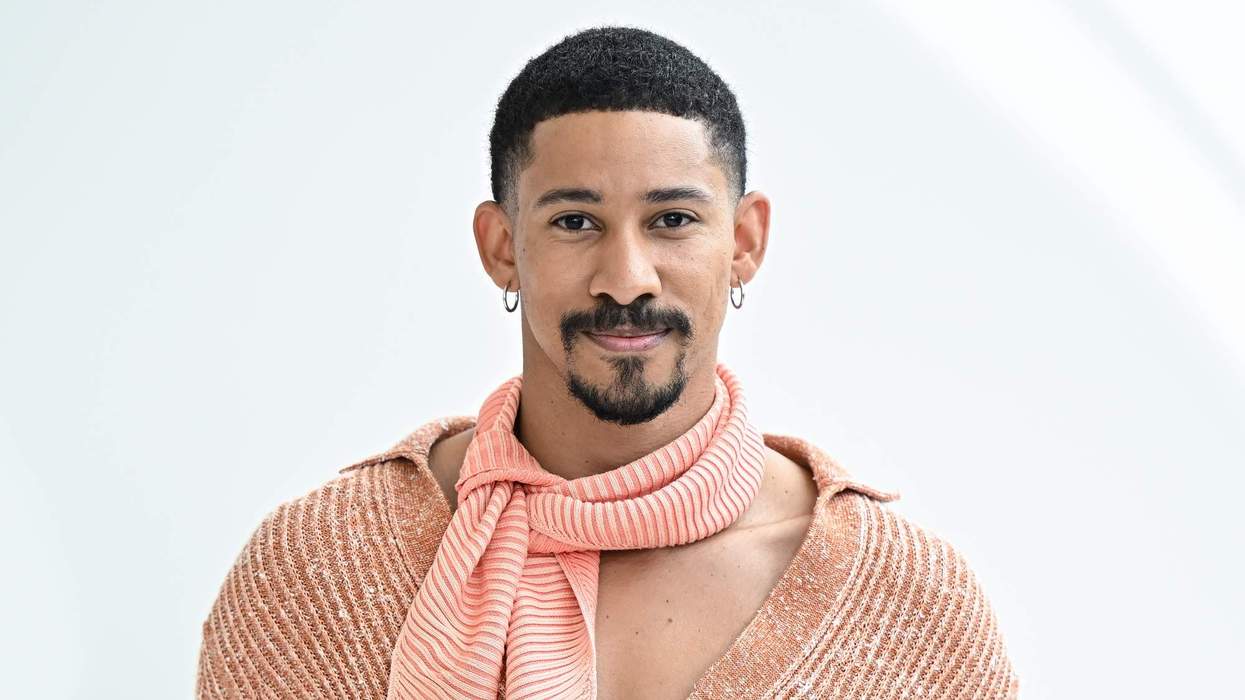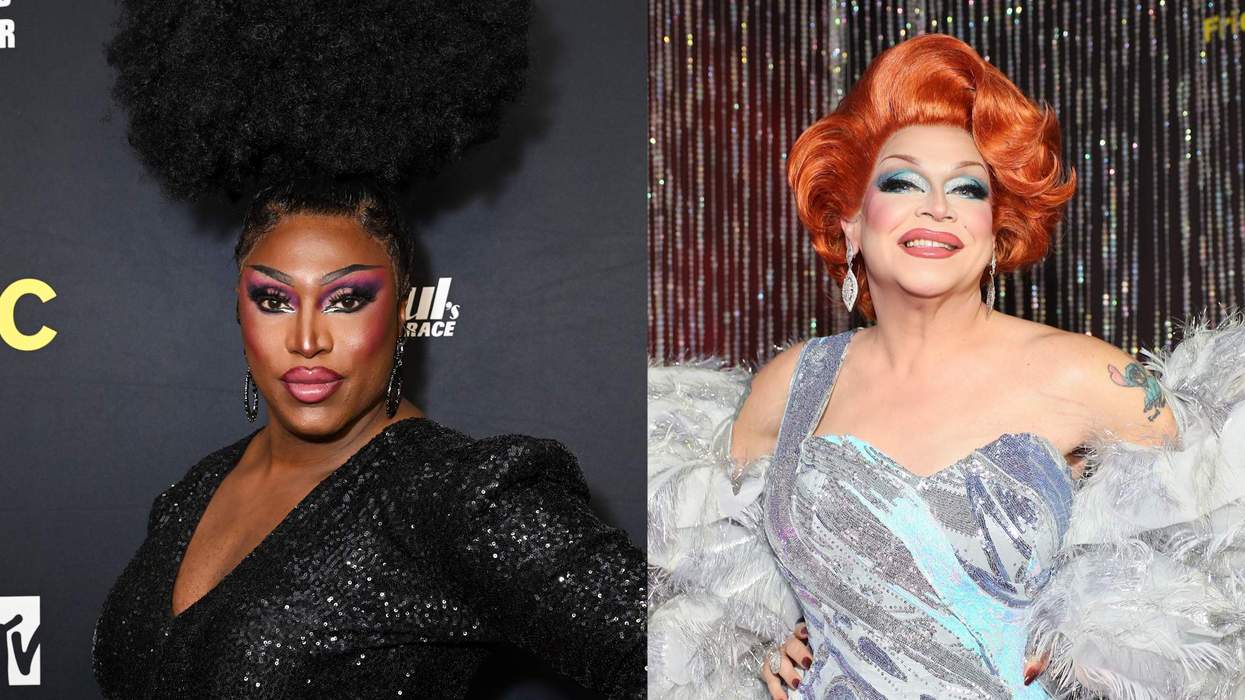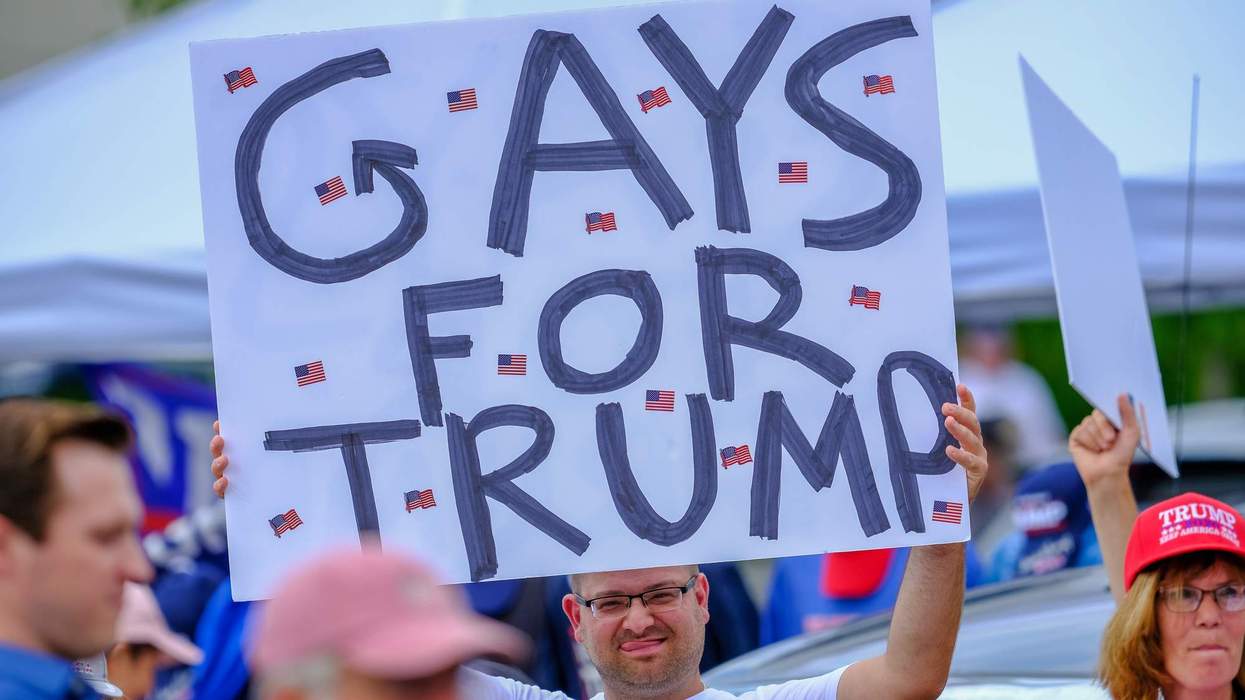"A home doesn't mean a house or where you live. Home is where your heart is," explains Feng Chen Wang as she sits surrounded by her new collection. For the Chinese-born and London-based designer, this is a theme that has guided her life and, recently, taken up another layer of meaning as Lunar New Year approached. Though the holiday is "bigger than Christmas" back home in China, with her busy schedule she decided to skip what is usually an annual trek for millions of people around the world.
In that journey though, she found the inspiration to return to her roots and tap into the globehopping holiday. Garments in shades of sunrise and sunset hues mix with pieces adorned with the number 239--a reference to her childhood home address.
Related | Feng Chen Wang Phoned Home With Patchwork Jackets & Puffer Coats
For Wang, the homeward bound inspiration follows last season's politically aggresive "Made in China" collection that reclaimed the bad reputation of Chinese craftsmanship to show a stunningly made series of garments that acted as a sartorial middle finger to anti-Chinese, Trumpian politics.
While the designer finished up her new collection and began to look towards the future, we caught up with her to talk about her vision of a gender-free future for fashion, Raf Simons' cultural apprecation, and the journey home.
Photography: Hunter Abrams
OUT: Last season, your "Made In China" collection was based around the theme of reclaiming Chinese craftsmanship. Is there a central theme for this collection?
Feng Chen Wang: Yeah, I think that this time, I focused on the Chinese New Year. In China, Chinese New Year is like Christmas. They all work in different cities and come back home--it's something I feel quite connected to. For me, this season I'm bringing out themes from my personal memory. It's about my home so I started it from where I was born. My [childhood] house number was 239, so I started from this number. This number is home for me.
We started from this point and I continued to think, what does a home mean to me now? Because you can almost never stay in one place forever, from where you're born. In my journey from China to other cities [and] other countries, I meet people in other different places. In this whole life journey, what am I looking for? What does home mean to me and everybody? I'm trying to tell this story to connect it to more people. A home doesn't mean a house or where you live. Home is where your heart is.
Your clothing has always been very androgynous. The silhouettes aren't really based in traditional menswear or womenswear.
Yeah. This collection has no gender; you can feel free to wear your own clothes. I think, in the future, you won't have to adhere to it--even in the sizing system. I think the sizing system is totally broken. With medium size and small sizes, you can wear men's medium size or you can wear women's large. I think we can work out something new. Why not?
As a Chinese designer who has really embraced your cultural identity, I wanted to ask what you think of designers taking inspiration from the futuristic, almost sci-fi feel of these huge cities in China. How'd you like the Raf Simons collection last season in Chinatown?
I think it was great. He used Chinese traditional elements, but in quite a modern way. I loved that because most other people...What's China in everyone's minds? For me, it's different than the European idea of what China's style is. What it means for them is different and I think Raf Simons does it in quite a modern way.
And without appropriating it.
Yeah. Using Chinese elements doesn't just mean putting Chinese things on. For me, it's how you translate a culture and how you translate an attitude, not just in the clothes, but by doing them in a modern way. It's not just a Chinese traditional shape or style on a model, it's different. It's talking about these things in a deeper way.
Photo courtesy of Feng Chen Wang
I like that in your last collection, you took that "Made in China" label and really reclaimed it. In America--especially with Trump--there's such a bad name associated with Chinese-made products. How does it feel to be a Chinese designer navigating that when there's such a stigma against Chinese production?
It's not good. Not only in New York, but everywhere a "Made in China" label makes people feel cheap.
"Oh, I don't want it."
"I wouldn't pay much for a Made in China label." It's normalized. Since we were born we've had this message told to us. Not anyone talks about that. Even brands try to keep it a secret that they use Chinese production, but it's not a secret. This is what I feel and this is what I face.
The people we are working with, they really handcraft the products. When you walk in, it's a different side of Chinese production than what people think. That's why I thought, why not bring it up so people will talk about that?
What do you want the takeaway message of your new collection to be?
I just tried to be honest to myself. For me, it really doesn't matter what people think or talk about, but it does matter what you think and to be honest to yourself. Being a fashion designer, I think you have to talk to yourself and ask who you are. It's about how you're going to be honest with yourself. People are going to judge you. Even before my "Made in China" collection debuted, people said, 'Hey, be careful about this! How can you say this about the collection? No one will buy that.' Everyone wants to hide the label. Everyone was trying to undermine me before the show--they were trying to protect me.
They said, 'Oh, you might destroy everything," and I said, 'No, it's the future!' It is! And why not? I just feel like we have different thoughts. Some people live in the past, but we live in the future. Why follow everyone else's thoughts? This season--and every season for me--is about being more honest to yourself and bringing out what you're trying to tell. Even with this collection's themes of home and what that means for everyone, I just started from my personal story and how I felt, then I connected it to people. Everyone is on a journey.
Photography: Hunter Abrams


